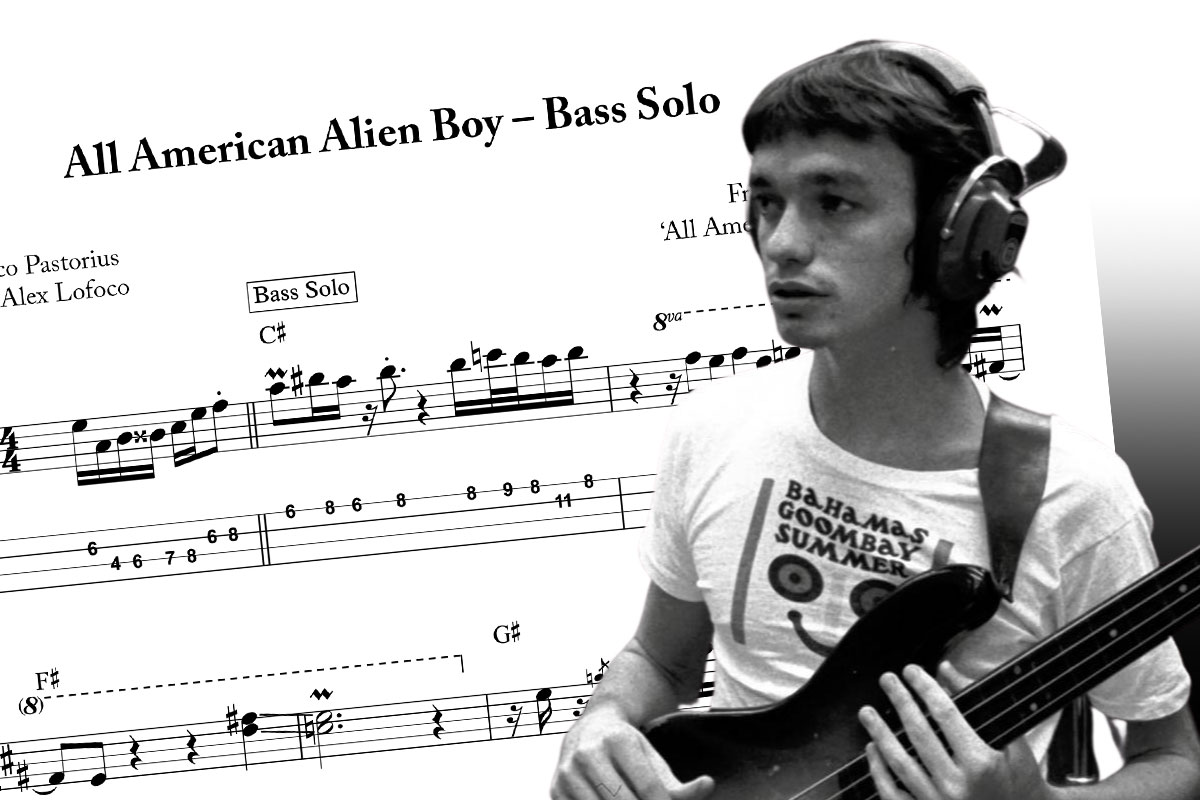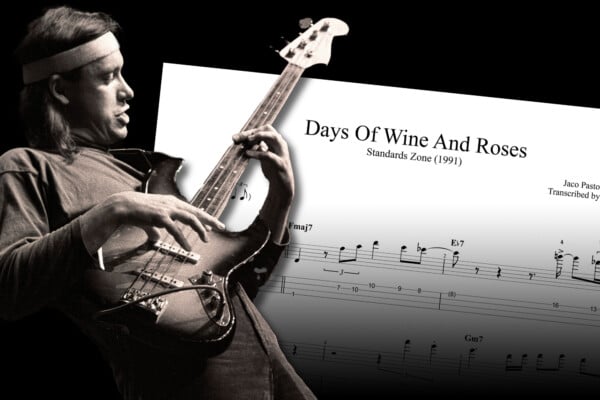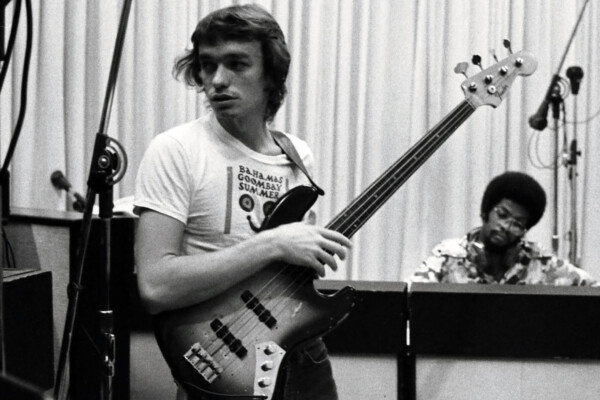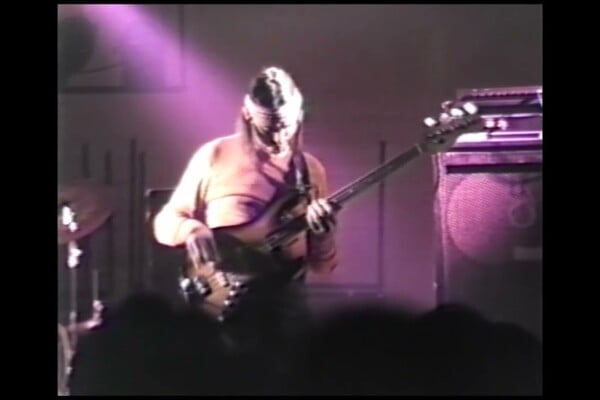Bass Transcription: Jaco Pastorius’s Solo on “All American Alien Boy”

In this article I will be talking a bit about a usual suspect – I’m not the first and I won’t be the last.
Jaco Pastorius has, without a doubt, profoundly changed the way we perceive the electric bass and its role in a band. His distinctive tone, grooves, and solos seemed to come literally from another planet – like if he was an Alien Boy – and became so iconic that Jaco had influenced generations of bass players and, I am sure, more to come.
“Jaco opened the door, and we just walked through”.
During my years of research and studies – still ongoing – I inevitably worked on all of the most representative of Jaco’s tunes such as “Teen Town”, “Portrait of Tracy”, “Come On Come Over”, “[Used To Be] Cha Cha”, and “Havona”, to name a few.
Amongst the incredible volume of work that Jaco has left us, this bass solo featured on “All American Alien Boy” by the British singer-songwriter Ian Hunter, is perhaps not as well known as others but, nonetheless, spectacular.
This track was released in 1976 and that year for Jaco was a very busy one. In those twelve months he recorded his debut solo album Jaco Pastorius, laid down his bass for Pat Metheny’s debut album Bright Size Life, worked on Joni Mitchell’s album Hejira, played with trombone virtuoso Albert Mangelsdorff and his collaboration with Weather Report was formalized with the release of the album Black Market.
The reason I chose to present you this piece of music is that besides being a fun solo to play, it is in my opinion a very clear entry-level Jaco phrasebook – being a collection of phrases and ideas Jaco often used on many other occasions – that clearly reflects Jaco’s style and soling approach. This also underlines the fact that Jaco’s vocabulary was already very broad and mature right at the beginning of his career, despite his young age of 24.
One common aspect of Jaco’s solos, is that each phrase is strictly related to the chord changes. Therefore, looking at the chord progression provides the guide to contextualize and study each phrase.
Because this tune is based on a simple I IV V chord progression, I found with my students that this solo is a great piece to start learning Jaco’s vocabulary and how to build a solo.
The phrases in this solo are a mix of Jaco’s Bebop and Blues influences and, it is not hard to spot many fragments and licks he has used in other tunes – “Donna Lee” (bars 5-6), “Fannie Mae” (bars 6-7), “Teen Town” (bar 13), “Barbary Coast” (bar 15) and other improvisations – are all combined in this relatively short but punctual and well though bass feature.
Besides hitting the right notes, I believe one crucial aspect of this – or any solo – is the phrasing and the pronunciation of each phrase is executed – also bear in mind it was played on an unforgiving fretless bass. A conscious use of articulations such as accents, and note length, grace notes, legato, vibrato, slide, string bending and, like Victor Wooten often reminds us, space, is needed here.
The transcription is only a reference and indicates the positions I believe Jaco used to finger each phrase. As no footage of Jaco playing this solo is available – or known to me – I based my judgment by cross-referencing the same licks Jaco used in his instructional DVD Modern Electric Bass, his live appearances with Weather Report, and other live solos we are lucky enough to watch on tape. But primarily I relied on my ear.
What I have learned when transcribing my book Contemporary Bass Guitar, Jaco Pastorius is that even if the notes are the same, by changing the position and/or the fingering, a phrase would sound quite different. I insist on the fact that we should not be a blunt copy of anyone but, when it comes to expanding the horizon and learning from a Master, it is good to try to understand how to clearly spell the phrases we hear.
Therefore, be meticulous and pay attention to every little detail when it comes to study and transcribe everything. Quoting Jaco: “Keep an open mind about music. Keep listening and your ears open!”.
Hope you’ll enjoy and learn a lot from this little gem and wish you good luck with your music journey.
Follow along with the transcription and the video:




Thank you. Good work! C sharp is not my favorite scale but this solo is perfect.
Hi Tom, thank you very much! ? Yes, C# could be a bit tricky. The other option would be to see it in Db.
However, because it’s a bluesy I-IV-V chord progression, I thought it would be easier to think of it like if it were in C – but half-a-step up. ?